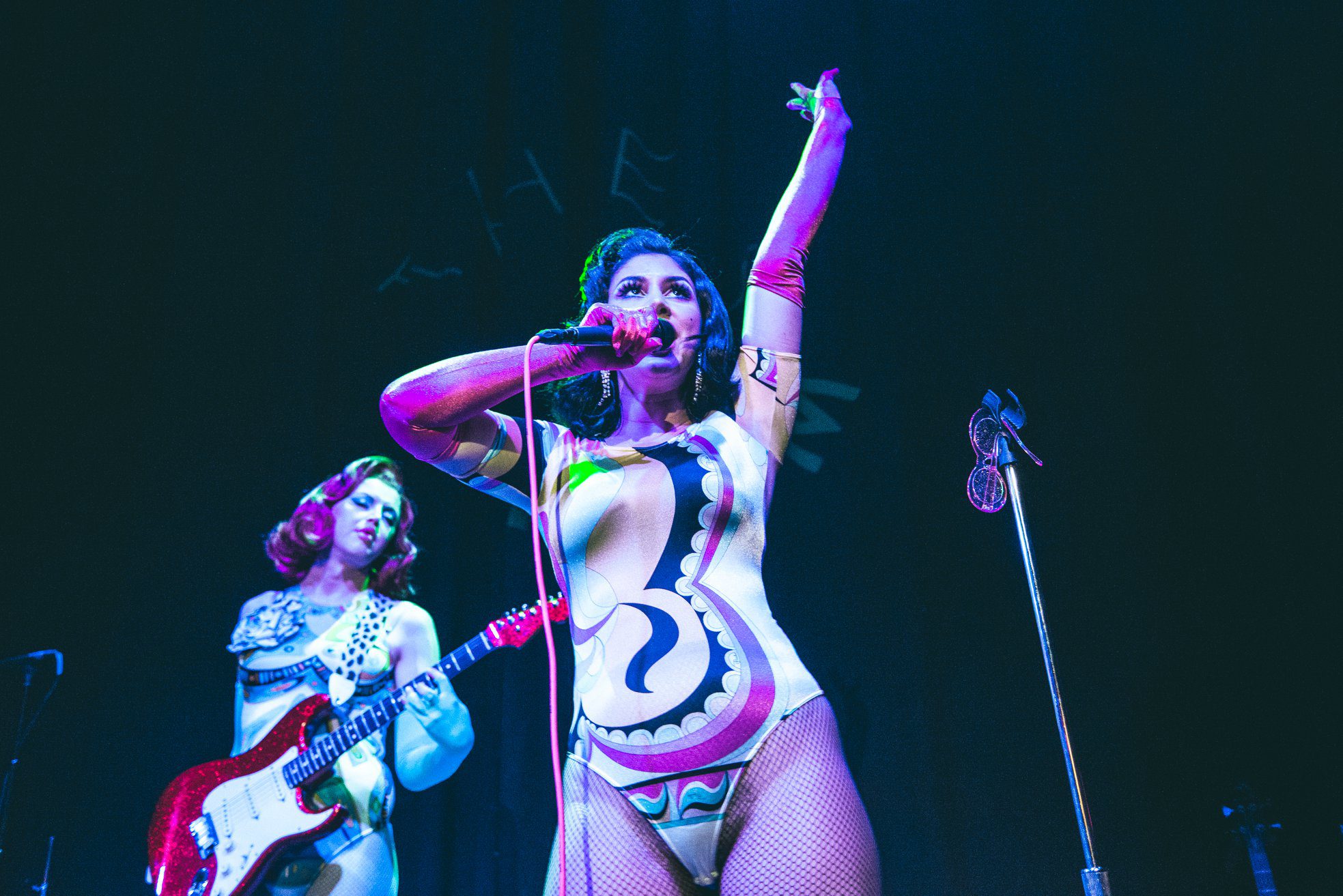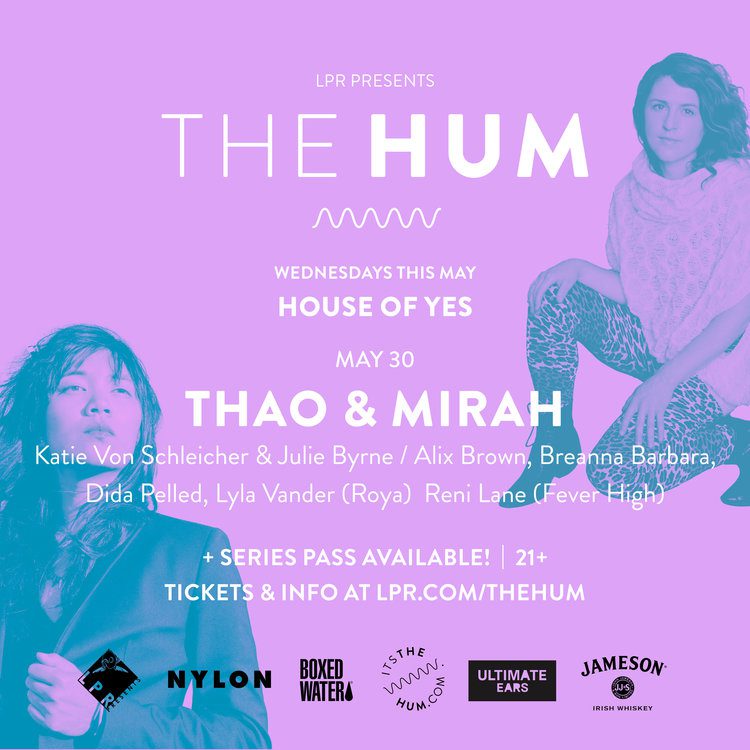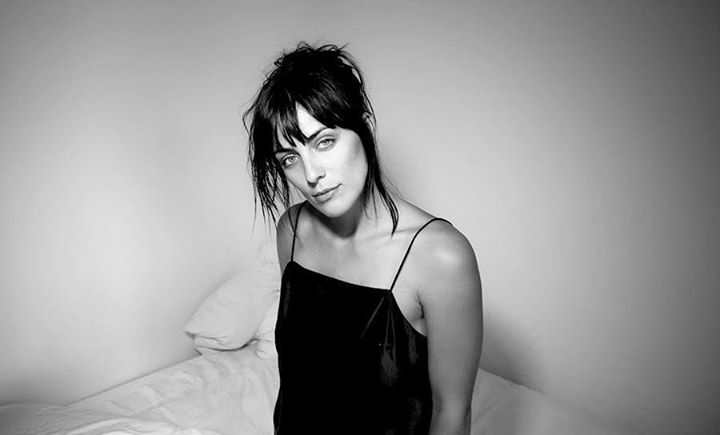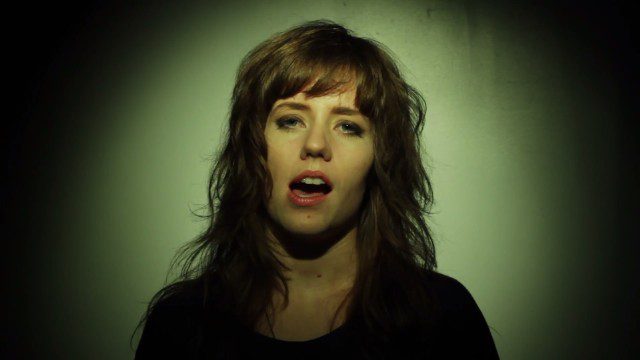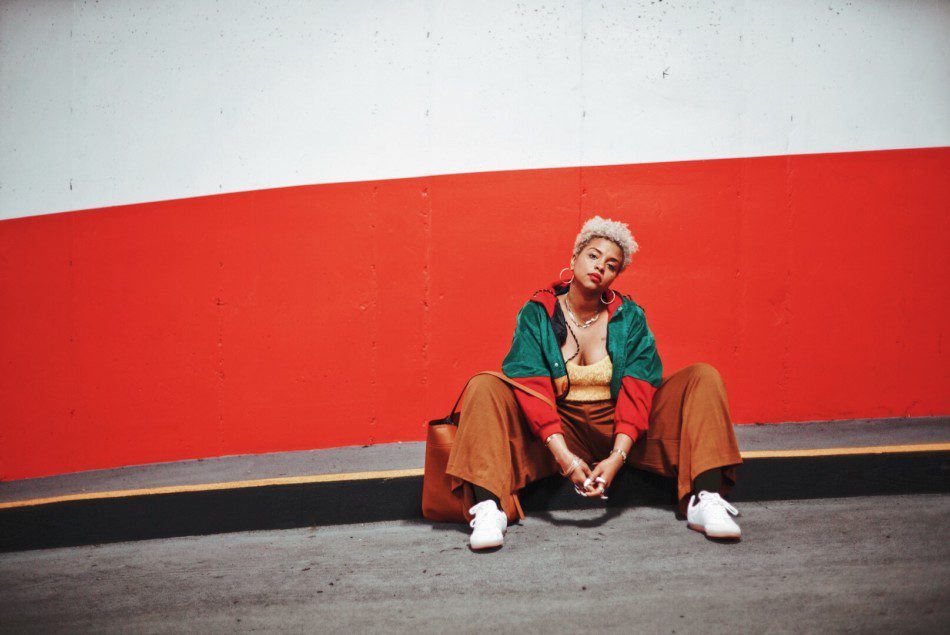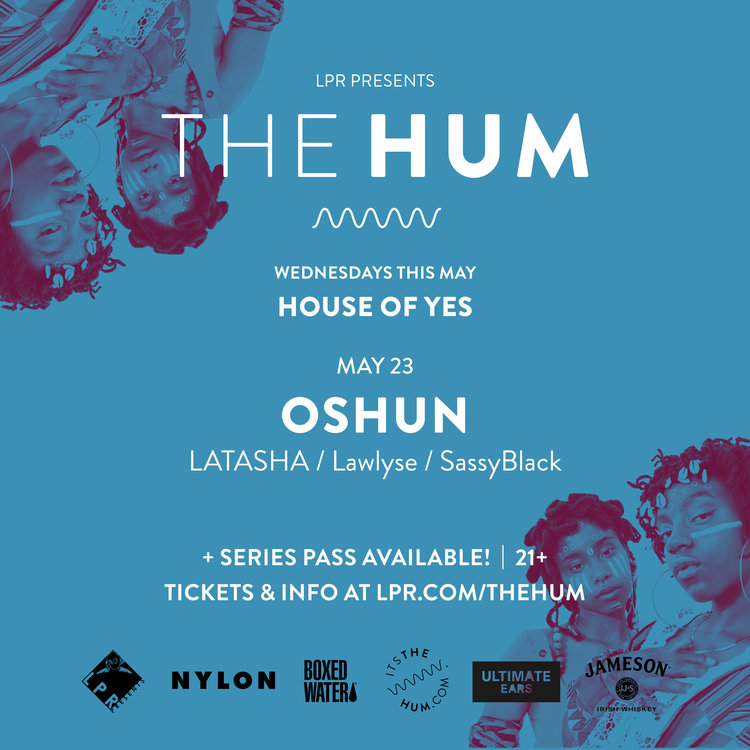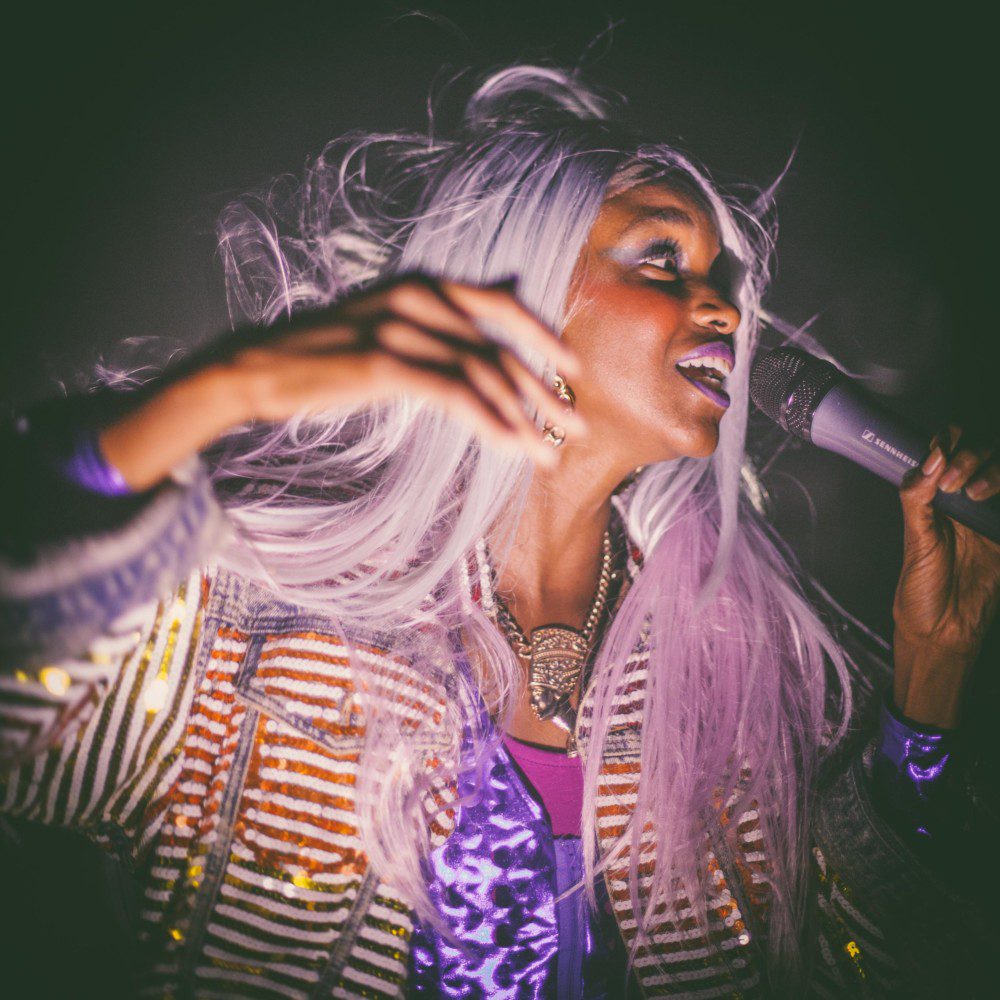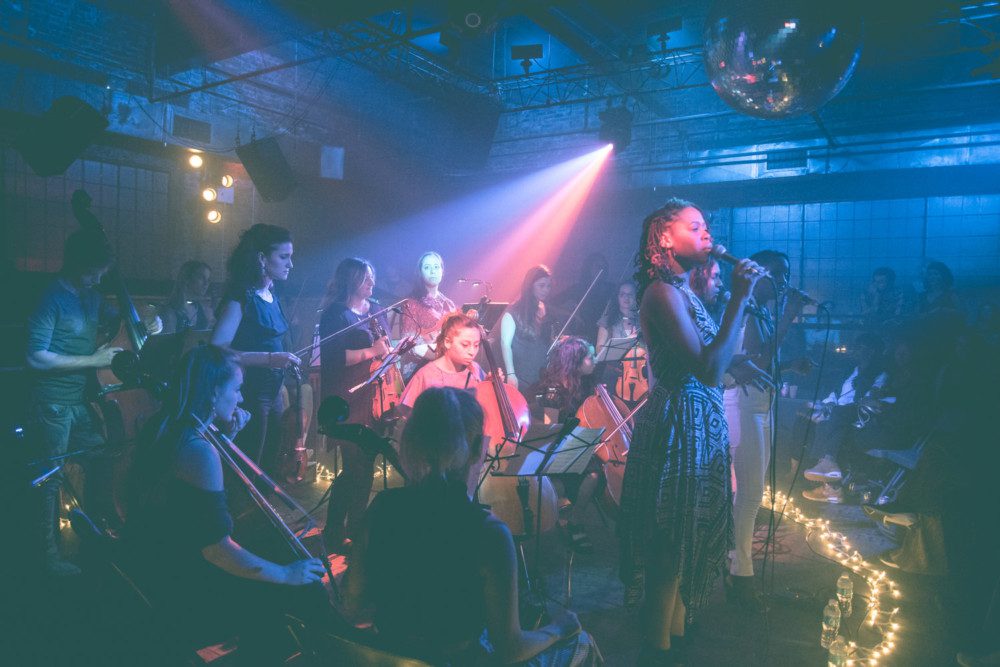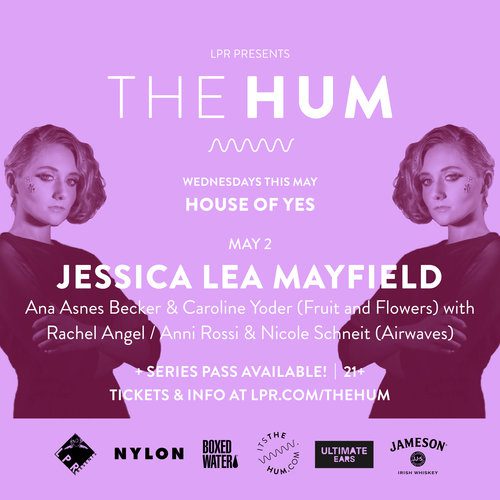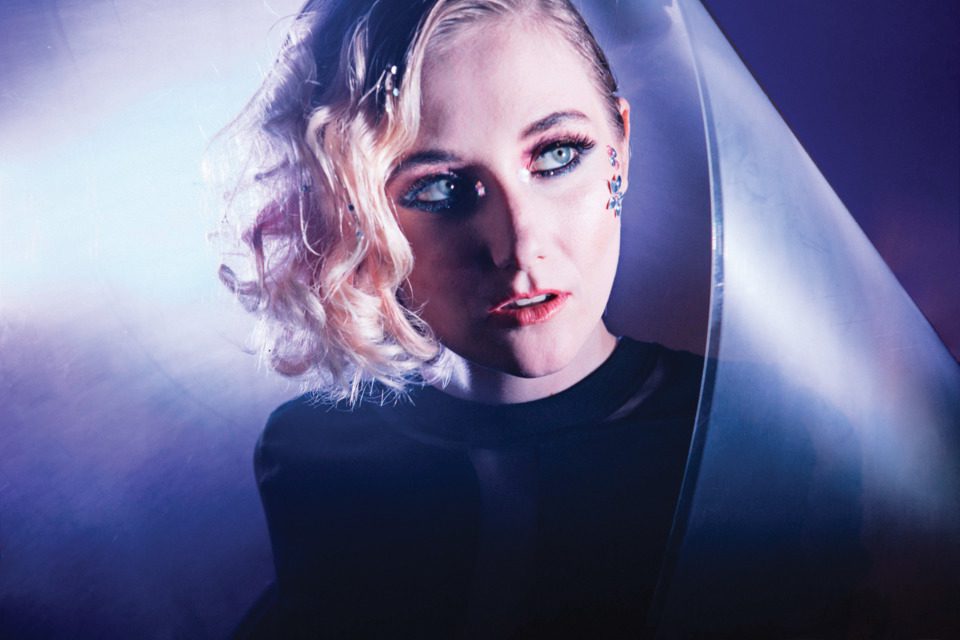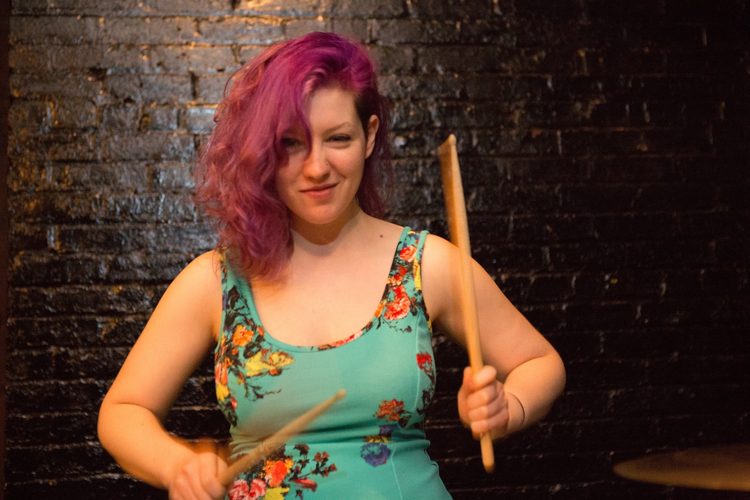How the #MeToo Movement Could Make Music Festival Season Safer
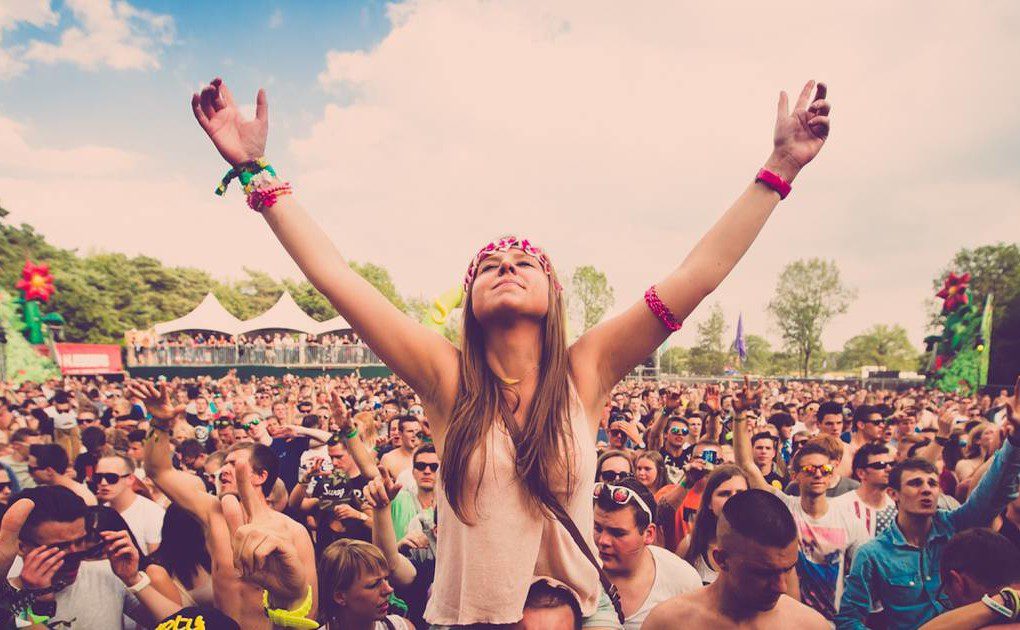
When I was 16 my most essential possession was a small backpack. It was made of a simple worn-in cloth, the fabric comprised of a colorful rainbow of stripes. The colors weren’t overtly vibrant, instead dulled, to give the desired vintage effect. It was a small bag and would fit no more than a cell phone, smoking pipe – concealed in the secret pocket I had prepared in the side wall – a purse, and on beach-going days a small, portable stereo. I had a friend who poked fun at how I always looked ready for a grand adventure. Although adventure was the outward identity people perceived, the backpack was a tool of quite another design.
This small bag was my weapon of armor. It created an innocuous barrier between myself and anyone who might try to add some unwanted grinding to my experience at a show, backyard concert, or festival. The more unwanted and aggressive the attention, the more I would flail the bag from side to side, an effective tactic that kept strangers away, and kept these experiences centered on the music.
For women who attend live music events, it’s common knowledge that while entering into a venue or festival grounds comes with many highlights, there’s always the underlying threat of machismo aggression. Although women have known this (and far too many have experienced it first hand) for years, it has taken festivals and venues longer to wise up and take ownership over the responsibility they have to ensure a level of safety within these spaces.
As far back as 2015, Vice Media started taking notice of these violence at festivals, running an article on Broadly that detailed the extent of the problem, then revisiting the topic again in 2016 with an article in Noisey that outlined some basic steps toward alleviating it. Also in 2016, NBC News covered the growing aggression of sexual violence taking hold in festivals globally. And just last summer, The Guardian posed the question: “Are music festivals doing enough to tackle sexual assault?” Even as they praised grassroots efforts being implemented across Europe, they recognized that there’s still a long way to go.
Now, as we ease into our first festival season in the wake of the #MeToo movement, current efforts are coming into sharper focus. A TeenVogue article published after this year’s Coachella stated that, out of 54 women interviewed, every single one of them claimed they had, in some way or another, been sexually harassed. Instead of waiting for festival policies to change, fans and femmes are creating their own safe utopias, in hopes that mainstream festivals might catch up to grassroots consent training.
Sex educator Emma Kaywin has started to work with smaller festivals on the East Coast to create consent-based teachings for volunteers. Working closely with the consent programs at Brooklyn’s popular art and performance space House of Yes, Kaywin has seen first hand what effect teaching participants of musical experiences can have on the overall safety of an event.
Currently studying for her doctorate in health education, and previously working as the sexual health columnist for Bustle, Kaywin turned to working on consent programs when she began feeling unsafe at clubs in New York. “I stopped going to a lot of parties, because I would just go there, get groped, get triggered and leave,” explains Kaywin. “I just wanted to be in spaces that felt safer.”
In her work with festivals, Kaywin has organized a two-hour long training, which includes information about recognizing microaggressions and how to respond. The training also focuses on intervention – more specifically, how to identify consent violations on the dance floor and how to intervene in situations of violence and intoxication. Those who have taken the training become “space guardians” of the dance floor. It is the job of these guardians to work as professional bystanders, and their purpose is twofold – to act as watchdogs who can intervene before an assault occurs and potentially remove the offending party, and to make themselves available as a trustworthy advocate for someone who feels unsafe.
While these trainings, and the idea of “space guardians,” can be easily implemented on dance floors at smaller festivals, the issue still remains – how do organizers make larger festivals, like Coachella, safe for everyone?
One campaign working with staff and fans alike is Chicago-based advocacy campaign #OurMusicMyBody. The organizers of the campaign work in conjunction with Chicago-based festivals, including Lollapalooza, to address problematic relations between fans and security.
“No one should be told exactly what they should do,” says Kat Stuehrk, co-organizer of #OurMusicMyBody, when discussing what advice she might give to a survivor. #OurMusicMyBody focuses on teaching security staff to first, believe the victims who approach them, then ask before acting what it is the person wants to have done.
Many security guards who are not trained properly will oftentimes immediately call the police, or take other actions victims are uncomfortable with, without asking permission. These actions further extend misdirected power dynamics, heightening the sense of lack of control a victim feels after an assault. #OurMusicMyBody works directly with security to establish protocol to directly help survivors, and communicate with them openly about their needs and wishes.
“We have folks from domestic violence or sexual assault agencies come in and do trainings for the security and the staff, about crisis intervention and how to respond with empathy, and with options for folks who have had those experiences.” explains Stuehrk. “Through no fault of their own, people don’t really know what to say or do.”
Another important component of the #OurMusicMyBody campaign is fan education. When given the opportunity by a festival organization, the campaign sets up a booth to teach practices of consent, and let others know it is okay to call out their friends who are being inappropriately aggressive.
Zero-tolerance policies posted on festival websites are the small first steps festivals can take to addressing the issues of sexual harassment. However, it doesn’t hold a lot of weight if fans themselves aren’t ready and educated with response tools, since even the most sensitive security staff can’t reliably watch over thousands of individuals. #OurMusicMyBody is working to addressing these levels of education, so that zero-tolerance policies can be upheld.
“As far as I’m concerned, every single person who is present at a festival, or works at that festival, needs to know what crisis intervention is and have a basic understanding of how to respond to a report of harassment,” says Stuehrk.
Overall, these various approaches are moving towards one thing; education. For a long time, festivals and festival-goers have refused to admit there was a problem – particularly men, who shockingly seem unaware that sexual harassment has been an ongoing issue for women at festivals. Along those lines, many festivals refuse to talk about how they are addressing these issues on their website or to attendees. It is this fear of recognizing the problem, and allowing those unaffected to stay in the dark, that allows violent behavior to proliferate. By the same token, those pushing for positive change must understand the sensitive, sometimes complicated nature of sexual violence, and take responsibility for their own actions in public spaces.
Writer Vera Papisova, who published the TeenVogue piece, also mentioned her little backpack. “This is why I usually wear a backpack in concert settings,” describes Papisova. “It forces distance between the stranger behind me and my body.” It won’t be the symbolic use of these backpacks that ends the abundance of sexual harassment at music festivals. In a post #MeToo age it is the responsibility of the masses to understand their personal role in maintaining spaces where violence towards women becomes unacceptable.
For more information on how to help prevent sexual assault, check out RAINN’s guidelines on bystander intervention.

